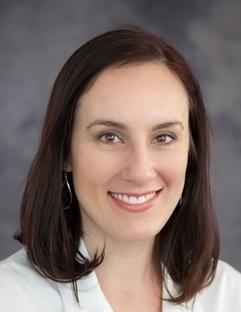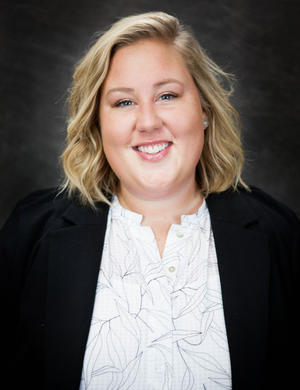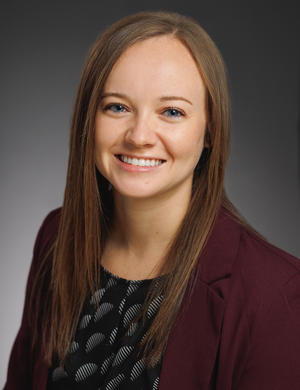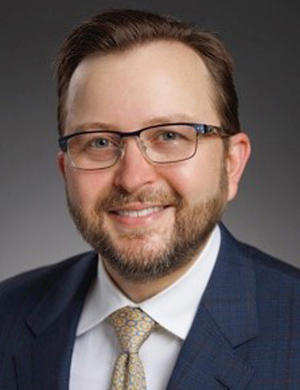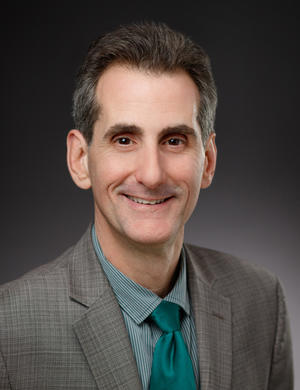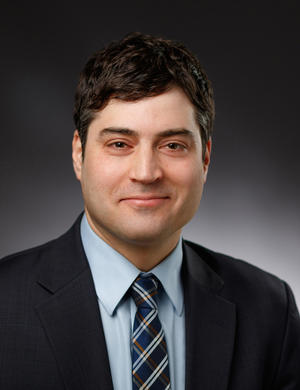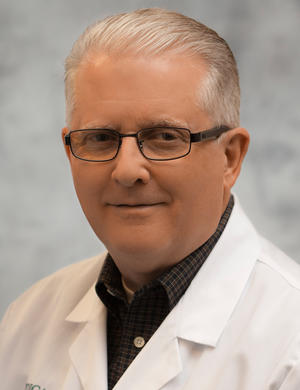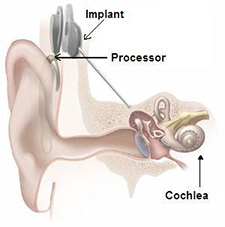
Curious about cochlear implants? The experts at the Koss Cochlear Implant Program understand that the decision to implant or not to implant is incredibly complex. A cochlear implant (or two) may dramatically increase your hearing, but it’s important to get as much information as possible before making a final decision.
How Cochlear Implants Work
A cochlear implant is a prosthetic device that helps deaf or hearing-impaired individuals perceive sound and speech. There are two main parts to a cochlear implant: an externally-worn speech processor and transmitter, and internal, surgically-implanted electrodes that stimulate the nerve that carries sound signals to the brain. The external components look similar to a hearing aid.
Cochlear implants don’t restore “normal” hearing; people with cochlear implants perceive speech and music differently than people with natural hearing. But people with implants are able to enjoy conversation and music and respond to sound cues within the environment.
Who Should Get a Cochlear Implant
The decision to get (or not get) a cochlear implant is extremely personal. Good candidates for cochlear implantation include:
- Deaf or severely hearing–impaired children ages 12 months to 18 years. (Some babies less than 12-months of age may be eligible for a cochlear implant.)
- Deaf or severely hearing-impaired adults.
- Children and adults who get insufficient benefit from hearing aids.
- Older adults with poor hearing. Research conducted by the experts with the Koss Cochlear Implant Program found that cochlear implants may help older adults more than hearing aids – and that implanting a cochlear implant while some residual hearing remains is an effective way to maintain hearing. Medicare covers cochlear implantation.
The Froedtert & the Medical College of Wisconsin Difference
The surgeons with the Koss Cochlear Implant program use a “soft surgical approach” which preserves as much residual hearing as possible. That makes cochlear implants a good option for individuals with some remaining hearing. Because the surgeons so carefully preserve the bone and structures of the inner ear, patients who undergo cochlear implantation through the Koss Cochlear Implant program may be able to someday take advantage of yet-to-be-developed techniques to further restore or improve hearing. The soft surgical approach is not widely available in the community, but our physicians use it every time.
What to Expect from a Cochlear Implant
Cochlear implant surgery is typically performed on an outpatient basis; patients usually go home the day of surgery. Children usually stay overnight.
In the past, cochlear implants were usually placed in just one ear. We believe, though, that patients should be able to enjoy their full hearing potential from both ears. For some people, that may mean a hearing aid in one ear and a cochlear implant in the other. For others, that might mean implants in both ears. If two implants are needed, they can be placed during the same surgery – or during two separate surgeries. Your doctor will fully discuss all of your options with you before surgery.
Activation of the implant occurs about 3-4 weeks after surgery. Six follow-up appointments are required over the first year to make sure that the device is adjusted to allow optimal hearing. Aural rehabilitation, or special listening exercises, can help you get the most benefit from your implant.
Because no two patients are the same, no two patients will achieve the same degree of hearing with cochlear implants. The level of achievement obtained will depend on the degree and length of hearing loss, hearing aid use and age at implantation. Your hearing can continue to improve for years after receiving the implant.
Audiologists
Orolaryngologists
Virtual Visits Are Available
Safe and convenient virtual visits by video let you get the care you need via a mobile device, tablet or computer wherever you are. We'll assess your condition and develop a treatment plan right away. To schedule a virtual visit, call 414-777-7700.

